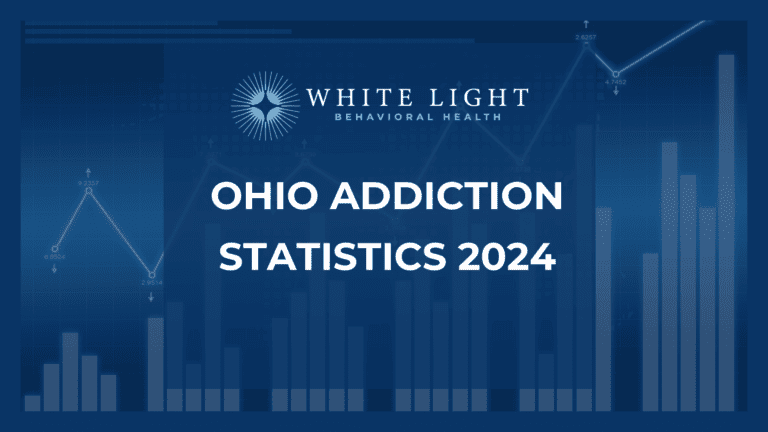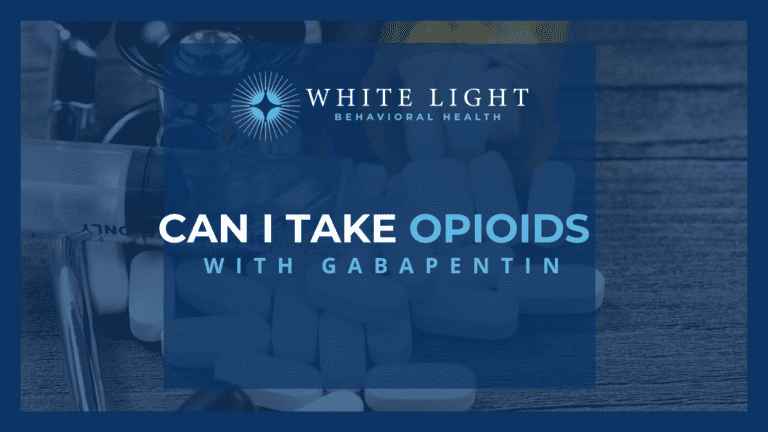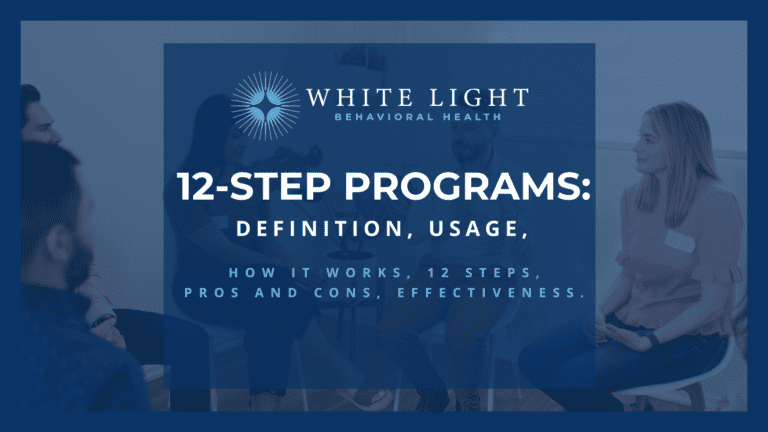At White Light, we understand that the journey to recovery extends beyond the initial phases of detox, residential, or outpatient treatment. Recovery is an ongoing process that requires continued support and care, which is where our Aftercare program comes into play. This crucial component of our services is designed to support individuals as they transition back into their daily lives, ensuring they have the tools, resources, and community support needed to maintain their sobriety and continue their growth.

Our Aftercare program in Columbus, Ohio, focuses on reinforcing the skills learned during treatment, providing a safety net through community support, and helping individuals navigate the challenges of life post-treatment.

What Is Aftercare
Aftercare refers to the ongoing support and services provided to individuals after they complete an initial phase of substance abuse or mental health disorder treatment. It’s a critical component of the recovery journey, designed to help maintain the gains achieved during more intensive treatment programs. Aftercare can include a variety of forms, such as support groups, counseling sessions, and educational workshops, all aimed at reinforcing recovery and preventing relapse.
At White Light, our Aftercare program is built on the understanding that the end of a residential or outpatient program is not the end of the recovery journey. Instead, it’s a new beginning, a step towards integrating into the community with newfound strength and resilience. Our Aftercare services are tailored to meet the ongoing needs of our clients, providing them with the resources and support necessary to navigate the complexities of life post-treatment and sustain their progress in recovery.
Who Needs Aftercare?
Aftercare is a vital step for anyone who has completed a treatment program and is looking to maintain their recovery journey in the face of everyday challenges. It’s particularly beneficial for:
Our Approach To Aftercare In Columbus, Ohio
In Columbus, Ohio, White Light’s approach to aftercare is founded on the principle that sustained support is key to long-term recovery. We recognize that each individual’s journey is unique, and as such, our aftercare services are designed to be as flexible and responsive as possible to the needs of our clients. Here’s how we tailor our aftercare program:
-
Personalized Support Plans: Understanding that recovery extends beyond the confines of initial treatment, we create personalized aftercare plans for each client. These plans are based on their specific challenges, achievements, and goals, ensuring that the support they receive is both relevant and effective.
-
Ongoing Therapy and Counseling: We continue to offer access to individual and group therapy sessions, allowing clients to deepen their understanding of themselves and their recovery. Counseling sessions focus on relapse prevention, stress management, and other critical areas for maintaining sobriety.
-
Community and Peer Support: A cornerstone of our aftercare is the emphasis on community. We facilitate connections to local support groups, recovery meetings, and sober activities, helping our clients build a network of peers who share similar experiences and aspirations.
-
Educational Workshops: To equip our clients with the tools they need for successful recovery, we offer workshops and seminars on topics ranging from healthy living and stress management to financial planning and career development. These educational opportunities are designed to enhance the life skills necessary for a fulfilling life in recovery.
-
Access to Resources: Recognizing that recovery can come with a range of practical challenges, we provide our clients with access to a variety of resources. This includes assistance with housing, employment services, and connections to community resources, ensuring that our clients have the support they need to navigate life post-treatment.
At White Light in Columbus, Ohio, our aftercare program is a testament to our commitment to the ongoing success and well-being of our clients. We believe that with the right support, recovery can be a journey of continuous growth and empowerment.
Ready to Get Help?
The recovery process at White Light Behavioral Health involves working on personal growth and development. White Light Behavioral Health’s aftercare program begins with a client visit from a sober coach. During this visit, clients discuss what they have learned and how they integrate their new coping skills into daily life. With the sober coach’s help, clients can work on managing stressors or triggers such as social media and hangouts with old friends who consume drugs and alcohol.
Drug and alcohol use disorder is a chronic disease that can be treated and managed with professional help. If you or someone you love is struggling with addiction, get the help you need by reaching out to White Light Behavioral Health today.
Frequently Asked Questions About Aftercare
Can the Aftercare program help me with employment and housing?
Absolutely. Part of our Aftercare services includes assistance with practical aspects of reintegration into everyday life, such as finding employment and securing stable housing. We provide resources and support to help you address these challenges as part of your recovery process.
What if I relapse after completing the treatment program?
We understand that recovery is a journey with its ups and downs. If you experience a relapse, our Aftercare program offers the necessary support to help you regain your footing. We focus on non-judgmental, compassionate care to address the relapse, understand its triggers, and strengthen your coping strategies for the future.
How do I know if the Aftercare program is right for me?
If you’re transitioning from a more intensive treatment program or seeking ongoing support to maintain your recovery, our Aftercare program may be right for you. It’s designed for those who have made significant progress in their recovery journey but recognize the value of continued support to navigate the complexities of life post-treatment.
How long should I participate in the Aftercare Treatment Program?
Participation length can vary based on individual needs and progress. The program is designed to be flexible, allowing individuals to continue accessing support for as long as they find it beneficial to their recovery journey.
Is participation in support groups mandatory?
While participation in support groups is highly encouraged due to their proven benefits in recovery, individuals are empowered to choose the methods of aftercare support that best fit their needs and preferences.
Can family members be involved in the aftercare process?
Yes, family involvement is often encouraged as part of the aftercare process. Family therapy sessions and educational workshops can be integral to rebuilding relationships and establishing a supportive home environment.



